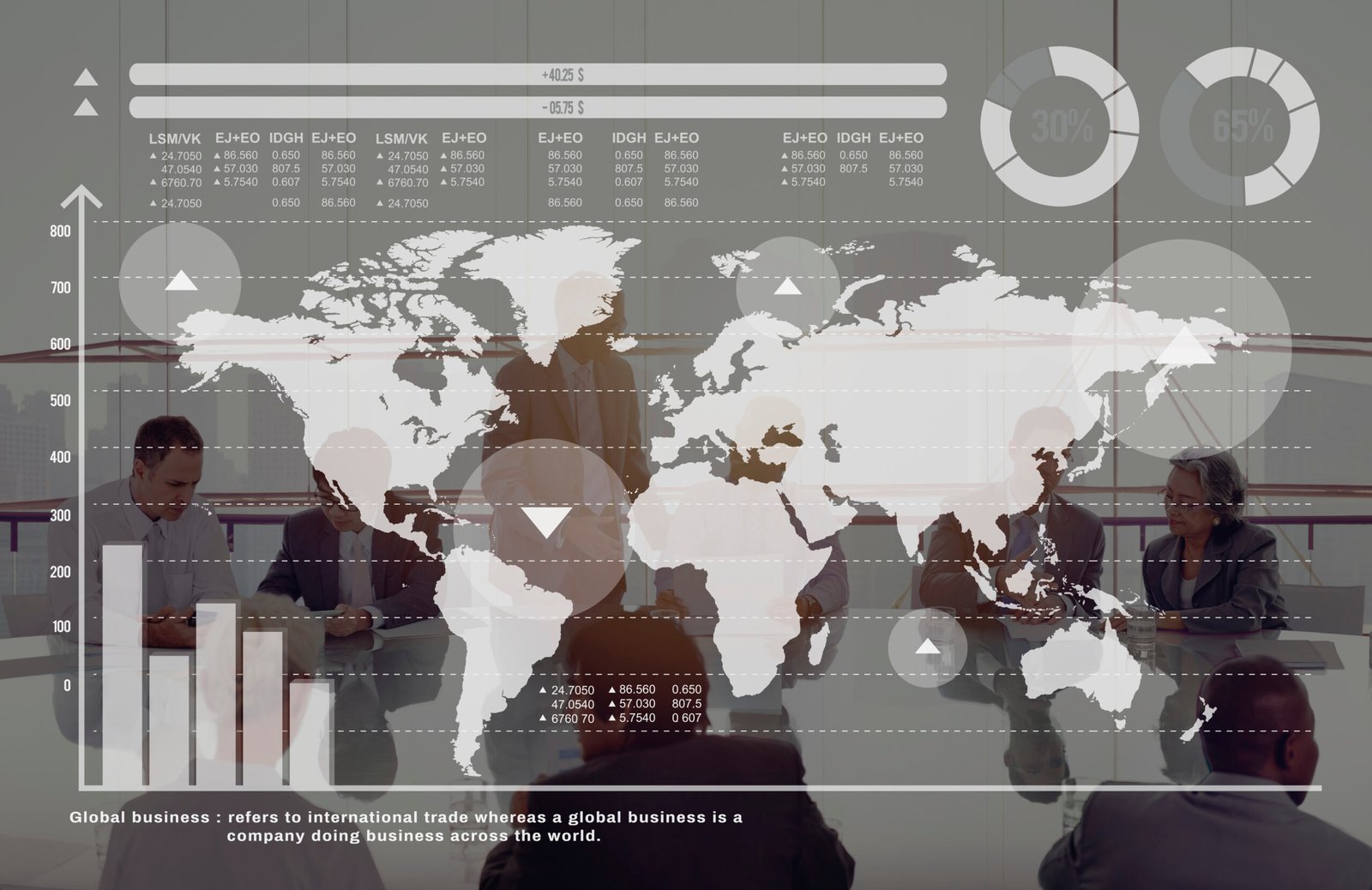Introduction
The global economy is a complex and interconnected system that influences every aspect of our lives, from the prices of goods and services to investment opportunities and job markets. Understanding the dynamics of the global economy is crucial for making informed financial decisions and staying ahead of market trends. This article delves into the key trends, challenges, and future prospects of the global economy, providing insights into how international economic dynamics shape markets and investments.
What is the Global Economy?
The global economy refers to the worldwide economic system that encompasses the production, distribution, and consumption of goods and services across national borders. It includes the interactions between different countries’ economies through trade, investment, and financial markets. The global economy is driven by various factors, including international trade policies, economic growth rates, currency exchange rates, and geopolitical events.
Key Components of the Global Economy
- International Trade: The exchange of goods and services between countries is a fundamental aspect of the global economy. Trade agreements, tariffs, and trade barriers can significantly impact economic growth and market dynamics.
- Global Financial Markets: Financial markets facilitate the flow of capital across borders. Stock markets, bond markets, and foreign exchange markets are essential for investment and economic stability.
- Investment Flows: Foreign direct investment (FDI) and portfolio investments play a crucial role in global economic development. Investment flows influence economic growth, job creation, and technological advancement.
- Economic Indicators: Key indicators such as GDP growth, inflation rates, and unemployment rates provide insights into the health of the global economy. These indicators are used to assess economic performance and make policy decisions.

Key Trends Shaping the Global Economy
Several trends are currently shaping the global economy, impacting everything from international trade to financial markets. Understanding these trends is essential for navigating the complexities of the global economic landscape.
1. Globalization and Trade
Globalization has been a major driving force in the global economy, leading to increased trade and investment across borders. The rise of global supply chains, multinational corporations, and international trade agreements has facilitated economic growth and development. However, recent trade tensions, protectionist policies, and geopolitical conflicts have introduced uncertainties into the global trade environment.
2. Technological Advancements
Technological innovations are transforming the global economy, driving productivity gains, and creating new business opportunities. Advancements in areas such as artificial intelligence, blockchain, and renewable energy are reshaping industries and influencing economic growth. Businesses and investors need to stay informed about technological trends to capitalize on emerging opportunities.
3. Climate Change and Sustainability
Climate change and environmental sustainability are becoming increasingly important in the global economic context. Governments and businesses are adopting policies and practices to address environmental challenges, reduce carbon emissions, and promote sustainable development. The transition to a green economy presents both opportunities and challenges for investors and policymakers.
4. Emerging Markets
Emerging markets are playing a growing role in the global economy, contributing to economic growth and investment opportunities. Countries such as China, India, and Brazil are experiencing rapid economic development and increased influence in global financial markets. Understanding the dynamics of emerging markets is crucial for identifying investment opportunities and assessing global economic trends.
5. Demographic Shifts
Demographic changes, including aging populations and shifting workforce dynamics, are impacting the global economy. The aging population in developed countries is leading to changes in labor markets, social security systems, and economic growth rates. Conversely, young and growing populations in emerging markets present opportunities for economic expansion and development.
Challenges Facing the Global Economy
While the global economy offers numerous opportunities, it also faces several challenges that can impact economic stability and growth. Addressing these challenges requires coordinated efforts from governments, businesses, and individuals.
1. Economic Inequality
Economic inequality is a growing concern in the global economy, with disparities in income and wealth distribution affecting social stability and economic growth. Addressing inequality requires policies that promote inclusive growth, improve access to education and healthcare, and support marginalized communities.
2. Geopolitical Risks
Geopolitical risks, including political instability, conflicts, and trade disputes, can have significant impacts on the global economy. These risks can disrupt trade flows, affect investment decisions, and create uncertainties in financial markets. Monitoring geopolitical developments is essential for managing risks and making informed investment decisions.
3. Financial Market Volatility
Financial market volatility can impact economic stability and investor confidence. Factors such as interest rate changes, economic data releases, and geopolitical events can contribute to market fluctuations. Investors need to be prepared for volatility and implement strategies to manage risk and protect their portfolios.
4. Global Health Crises
Global health crises, such as pandemics, can have profound effects on the global economy. The COVID-19 pandemic, for example, disrupted global supply chains, impacted economic activity, and highlighted the importance of public health in economic stability. Preparing for and managing health crises is crucial for maintaining economic resilience.
Future Prospects for the Global Economy
Looking ahead, several factors will shape the future of the global economy. Understanding these factors can help individuals and businesses navigate the evolving economic landscape and make informed decisions.
1. Innovation and Technology
Technological advancements will continue to drive economic growth and transform industries. Innovations in fields such as artificial intelligence, robotics, and renewable energy will create new opportunities and reshape the global economy. Staying informed about technological trends and investing in innovative sectors can provide a competitive edge.
2. Sustainable Development
The transition to a sustainable economy will be a key focus for governments, businesses, and investors. Policies and practices that promote environmental sustainability, reduce carbon emissions, and address climate change will play a crucial role in shaping the future of the global economy. Investing in sustainable technologies and practices can contribute to long-term economic success.
3. Global Cooperation
Global cooperation and collaboration will be essential for addressing global challenges and promoting economic stability. International organizations, trade agreements, and collaborative initiatives will play a vital role in managing economic risks and fostering growth. Engaging in global partnerships and staying informed about international developments can enhance opportunities and mitigate risks.
4. Demographic Changes
Demographic shifts will continue to influence the global economy, with implications for labor markets, consumer behavior, and economic growth. Adapting to demographic changes and understanding their impact on different regions can provide valuable insights for investment strategies and economic planning.

Conclusion
Navigating the global economy requires a thorough understanding of key trends, challenges, and future prospects. By staying informed about globalization, technological advancements, climate change, emerging markets, and demographic shifts, individuals and businesses can make informed decisions and capitalize on opportunities. Addressing challenges such as economic inequality, geopolitical risks, financial market volatility, and global health crises will be essential for maintaining economic stability and growth. As the global economy continues to evolve, staying informed and adapting to changes will be crucial for achieving long-term financial success.






